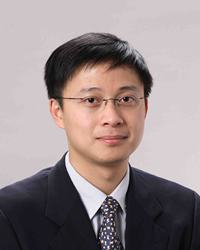He is leading the Obama administration’s Materials Genome Initiative (MGI) and serving as one of three co-directors of the Center for Hierarchical Materials Design (ChiMad), which is a main project of MGI.

Frank C. Engelhart Professor of Materials Science and Engineering
Professor of Engineering Sciences and Applied Mathematics
Northwestern UniversityMaterials Informatics: Mining, Infrastructure, and Alloy Design
Materials data lies at the core of any materials development effort. It provides the foundation for the models that are used to compute the properties and structure of materials, and can be used to identify new compounds with novel properties. A classic example is the central role played by CALPHAD free energy functions in simulations of microstructural evolution in hierarchical materials. Another is identifying compounds with unique properties through mining databases created by density functional calculations. However, challenges remain. In many cases it is unclear how to share data and discover existing databases. While many materials databases exist, their long-term sustainability is often unclear. In addition, there is no community-wide consensus on the proper metadata for a given dataset. I will discuss our efforts in data mining, a proposal for a world-wide federated system of materials databases, an approach to handling large materials data, and methods for creating schemas for materials data.

